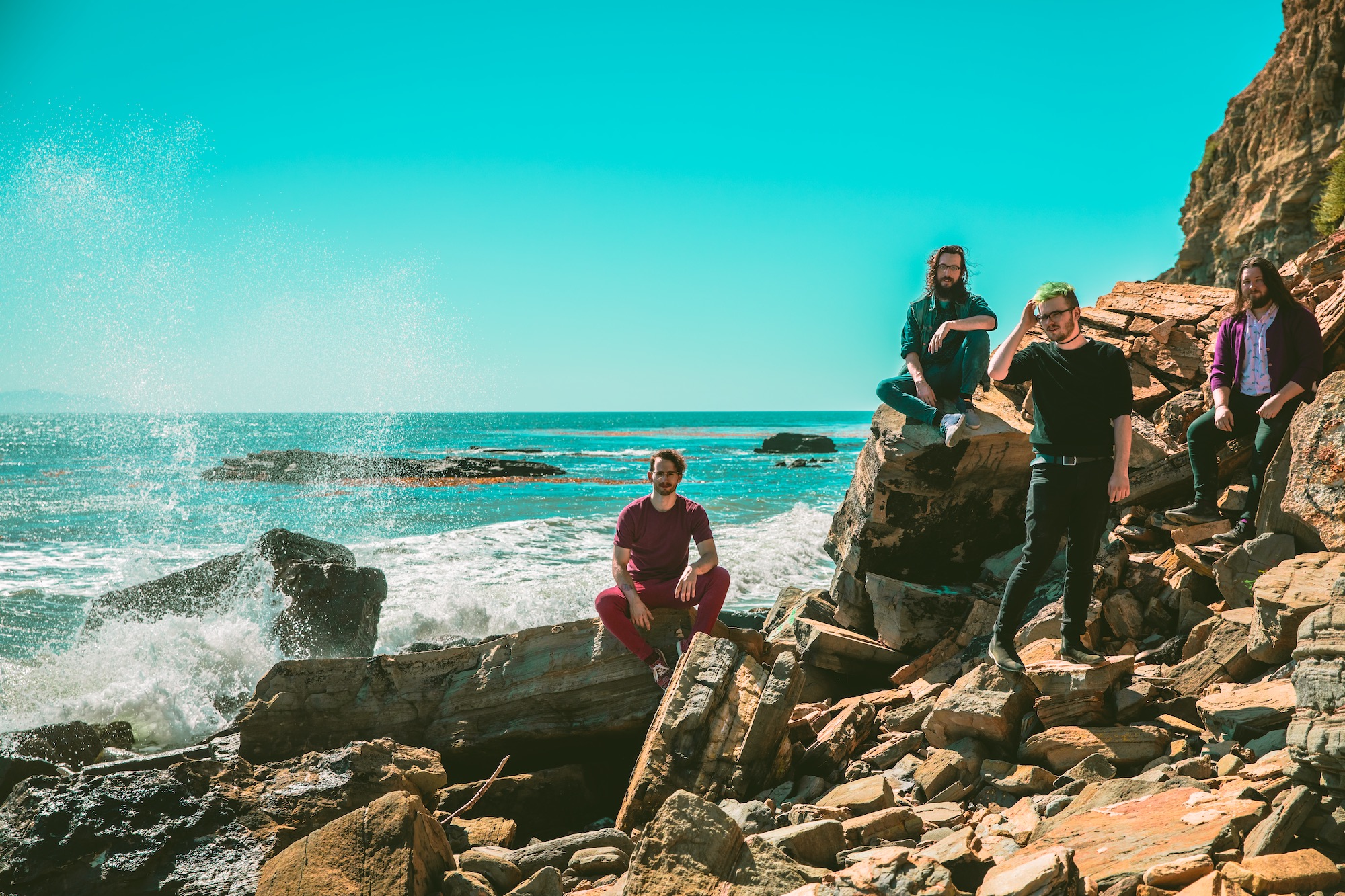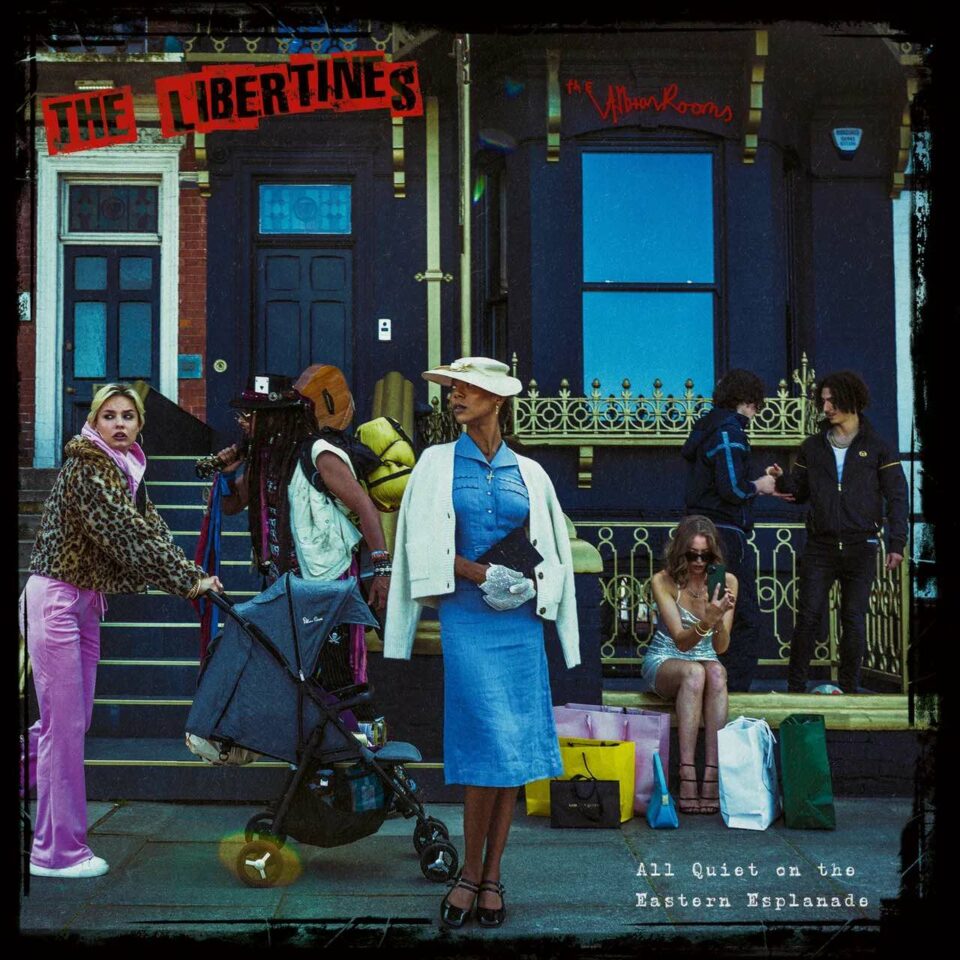The First Glass Beach Album was one of the best kept secrets of the first half of the year, but by the time it gets an official Run for Cover vinyl release in January, that underground status is likely to change. It makes sense that Glass Beach found a home at the experimentalist-friendly punk label, considering the LA quartet’s penchant for applying their Los Campesinos!–like energy, Queen-ish operatics, and Palm-y prog tendencies to an emo agenda fully accepting of the genre’s black-sheep cousin ska.
With this complicated formula in mind, it’s no wonder that the band cites several of the label’s most out-there releases as their favs, opting for the wonky synth rock of Crying over label staples by groups like Tigers Jaw or Turnover. Members J McClendon, Jonas Newhouse, William White, and Layne Smith outline five of these records below, trying their best to explain some of the most inexplicable sounds released this decade.
The First Glass Beach Album is also streaming below, and is set to be released physically by Run for Cover on January 24. You can pre-order it here.
Crying, Beyond the Fleeting Gales
J McClendon: I’ve been a fan of Crying ever since I heard their first EP, Get Olde, whose creative mix of chiptune and pop-punk was hugely influential to me back when I was making chiptune as casio dad. Beyond the Fleeting Gales took their sound in a completely different direction, doing a really original take on ’70s and ’80s prog-rock and introducing a much more eclectic and colorful sound palette, with weird dreamy synth tones over pounding drums and super-distorted guitars. A huge part of the appeal for me is Elaiza Santos’s slightly relaxed but incredibly emotive vocal delivery, which complements the chaotic instrumentals surprisingly well. This record is so much fun to listen to from beginning to end, full of life and inventive ideas at every turn.
Katie Dey, Solipsisters
Jonas Newhouse: We were listening to this album in the car and Layne, unprompted, said, “If Imogen Heap is oil paintings, Katie Dey is watercolor.” That was even before I showed him the album cover for Solipsisters, a watercolor piece with hidden elements that I didn’t notice all of until at least my seventh glance, and which does a great job of foreshadowing the distorted melancholy of its sounds. I’ve been into Katie Dey’s style since I first listened to “Only to Trip and Fall Down Again,” per Spotify’s recommendation, and her new album is a fantastic progression of the moody pop that drew me in and threatened to keep me forever. This album, and Katie Dey as an artist, is great to put on when you want to fall into the feeling of swimming through digital emotions. Since finding these songs, I’ve found myself wanting to indulge that feeling more and more.
Petal, Magic Gone
William White: I was first introduced to Petal with a couple of singles from this record. I literally could not have told you what they were. Like, I’m garbage. I’m one of those people who puts on music without looking at the song or album titles, but I loved them and checked out Shame—because I like to see where people come from before checking out the new shit—which was excellent. Now, Magic Gone… Tell me another fucking person crushing vocals and rhythm so hard they only need one melodic element. I’m so used to hearing so many melodies in a song, with second guitars and pianos and trumpets etc. (Glass Beach), and Petal does it all with the calmest vocal melodies, perfectly complementary rhythm on the drums and bass, and chillingly gorgeous harmonies with backing vocals and guitar. I mean, the singing! What the fuck? People shouldn’t be allowed to have a killer chest, head, falsetto, and mix voice. That’s not fair. Honestly, I love the production on the vocals, especially when the belting comes in. The sound becomes, like, a person shouting it out in a bathroom or something with some really natural reverb. It. Just. Rules. Do yourself a favor and listen to, at least, “Tightrope” and see if you stop there.
Camp Cope, How to Socialise & Make Friends
WW: I like literal lyrics. I’m not saying that’s the only way Camp Cope writes, but holy fuck, sometimes just saying exactly what you feel and what’s happened to you is the most powerful way you can say something. That’s this record for me. And I’m sure everyone in the world has talked about how goddamn raw the vocals are. Ya know, about how strained and honest and killer and…shit, yeah, I’ll talk about it too. The vocals are fucking unbelievable. It’s a really special thing to know a singer understands exactly how to write melodies/songs that fit exactly what they can do with their voice. They have a stripped-down sound where everything is just as complicated as it needs to be in order to make you fucking listen. And you should. Fucking listen.
mewithoutYou, Pale Horses
Layne Smith: mewithoutYou was unusual to me when I was younger, but the convergence of folk, spoken word, and emo-rock swirled into what may seem less conventionally “polished,” has a lot to dig into, lyrically and musically. Pale Horses was really engaging to me, it had me contemplating feelings pertaining to my personal faith in certain ideas, and the way I viewed much of the outside world. To me, songs like “D-Minor” explore the muted insignificance one can be consumed by in devastating moments that remind us of how the world is vast, but is always moving despite how we feel.
“Lilac Queen” is a favorite, not just musically, but with lines like “Thy foes profanely rage, hands washed, Pontius Pilate clean” it brought about some reflection of how wielding brash and uncompromising beliefs can quickly turn into destructive detriment if you aren’t considering how your actions affect others. It came out the year I moved to LA, away from any safety net and almost everyone I knew, into a city that is full of interesting people and events, but also intense cynicism. I’m not religious, so I feel Aaron Weiss abstaining from evangelical lyricism and embracing personal human experiences is a choice that has made mewithoutYou’s music a treasure.









